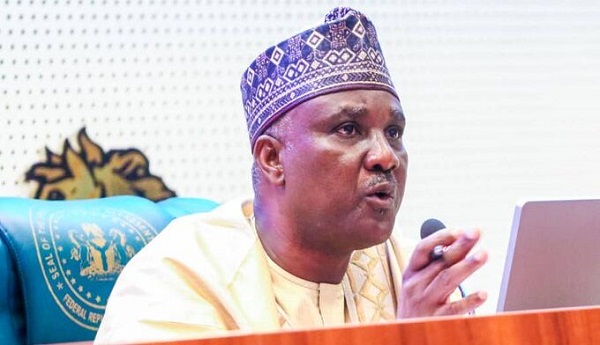Speaker of the House of Representatives, Tajudeen Abbas, has identified lack of capacity, inadequate funding, a culture of secrecy, and lack of transparency as major challenges hindering effective oversight of the security sector in Nigeria.
Speaking at a workshop on enhancing legislative oversight of the national security and intelligence sectors, organized by the House Committee on National Security, Abbas emphasized the importance of effective legislative oversight in a functioning democracy. He stated that robust oversight mechanisms are essential to prevent abuse of power, protect civil liberties, and safeguard national interests.
"Effective legislative oversight is the cornerstone of a functioning democracy. Within the context of national security and intelligence, robust oversight mechanisms are essential to prevent abuse of power, protect civil liberties, and safeguard national interests. Without proper checks and balances, there is a risk that these agencies may operate unchecked, potentially leading to violations of human rights or misuse of resources," Abbas said.
The Speaker stressed that lawmakers need adequate knowledge of the workings of the security and intelligence sectors to perform effective oversight. He pointed out that the legislature plays a crucial role in overseeing and ensuring the effective functioning of the security sector, which is essential for sustainable development.
"In a democratic setting, the legislature plays a crucial role in overseeing and ensuring the effective functioning of the security sector as essential due to the inherent link between security and sustainable development. When individuals feel secure within their society, they are more likely to engage in activities that contribute to sustainable livelihoods and overall development," Abbas noted.
Despite the constitutional mandate for oversight, Abbas highlighted several challenges that impede the effectiveness of legislative scrutiny over the national security and intelligence sector in Nigeria, including limited capacity and expertise among lawmakers.
"The nature of national security and intelligence operations often involves classified information, intricate technologies, and sensitive strategies. This complexity can pose challenges for legislators in comprehensively understanding and evaluating these matters during oversight activities," Abbas explained.
He also pointed out that poor and inadequate funding of committee engagements limits the ability to conduct thorough investigations and access necessary expertise. Additionally, the culture of secrecy surrounding national security can sometimes lead to resistance or interference when legislators attempt to exercise their oversight responsibilities, and lack of transparency can impede accountability.
"Given our complex security environment, it is imperative that as lawmakers, we have the capacity and capability to oversee the activities of security agencies effectively. To effectively carry out this responsibility, members of our legislative bodies require a high level of technical competence and knowledge in national security and intelligence governance and oversight," Abbas added.
Chairman of the House Committee on National Security and Intelligence, Ahmed Satomi, noted that the committee comprises members from all 36 states to ensure that the security status of every state and the Federal Capital Territory (FCT) is brought to the consciousness of the House for necessary legislative attention.




